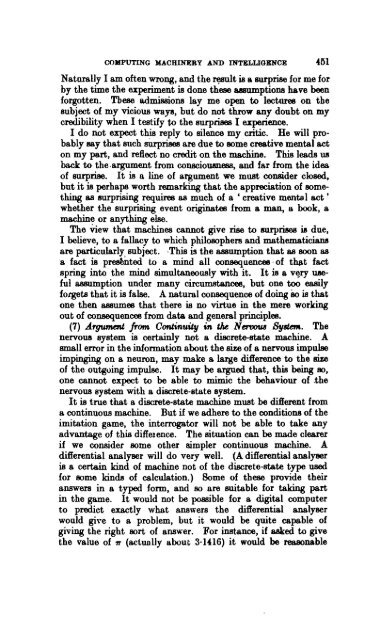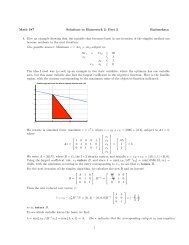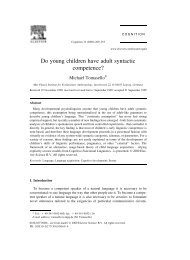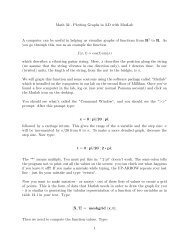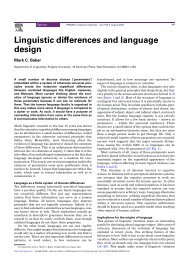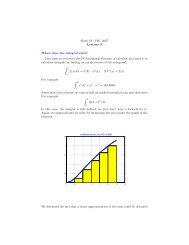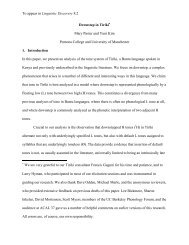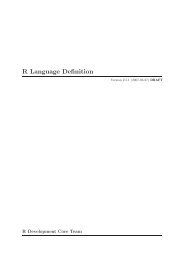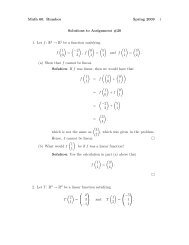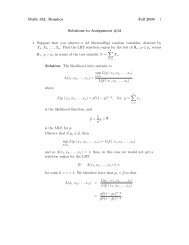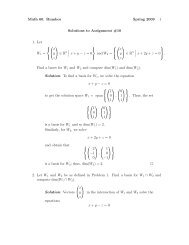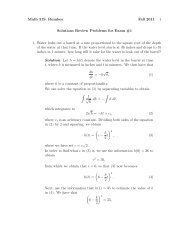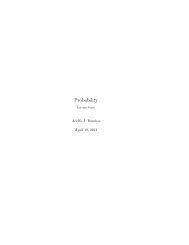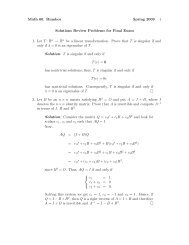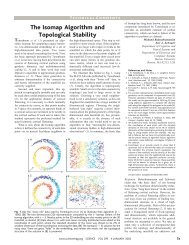Computing Machinery and Intelligence - Mind
Computing Machinery and Intelligence - Mind
Computing Machinery and Intelligence - Mind
You also want an ePaper? Increase the reach of your titles
YUMPU automatically turns print PDFs into web optimized ePapers that Google loves.
COMPUTING MACHINEBY AND INTELLIGENCE 461Naturally I am often wrong, <strong>and</strong> the result is a surprise for me forby the time the experiment is done these assumptions have beenforgotten. These admissions lay me open to lectures on thesubject of my vicious ways, but do not throw any doubt on mycredibility when I testify to the surprises I experience.I do not expect this reply to silence my critic. He will probablysay that such surprises are due to some creative mental acton my part, <strong>and</strong> reflect no credit on the machine. This leads usback to the argument from consciousness, <strong>and</strong> far from the ideaof surprise. It is a line of argument we must consider closed,but it is perhaps worth remarking that the appreciation of somethingas surprising requires as much of a ' creative mental act'whether the surprising event originates from a man, a book, amachine or anything else.The view that machines cannot give rise to surprises is due,I believe, to a fallacy to which philosophers <strong>and</strong> mathematiciansare particularly subject. This is the assumption that as soon asa fact is presented to a mind all consequences • of that factspring into the mind simultaneously with it. It is a very usefulassumption under many circumstances, but one too easilyfo/gets that it is false. A natural consequence of doing so is thatone then assumes that there is no virtue in the mere workingout of consequences from data <strong>and</strong> general principles.(7) Argument from Continuity in the Nervous System. Thenervous system is certainly not a discrete-state machine. Asmall error in the information about the size of a nervous impulseimpinging on a neuron, may make a large difference to the sizeof the outgoing impulse. It may be argued that, this being so,one cannot expect to be able to mimic the behaviour of thenervous system with a discrete-state system.It is true that a discrete-state machine must be different froma continuous machine. But if we adhere to the conditions of theimitation game, the interrogator will not be able to take anyadvantage of this diffeience. The situation can be made clearerif we consider some other simpler continuous machine. Adifferential analyser will do very well. (A differential analyseris a certain kind of machine not of the discrete-state type usedfor some kinds of calculation.) Some of these provide theiranswers in a typed form, <strong>and</strong> so are suitable for taking partin the game. It would not be possible for a digital computerto predict exactly what answers the differential analyserwould give to a problem, but it would be quite capable ofgiving the right sort of answer. For instance, if asked to givethe value of IT (actually about 3-1416) it would be reasonable


